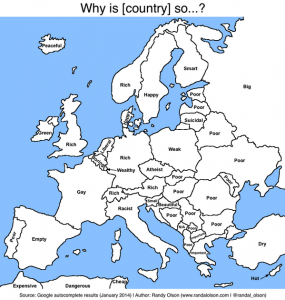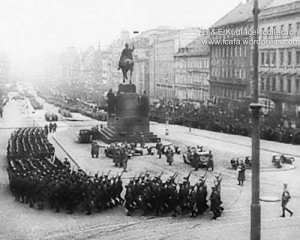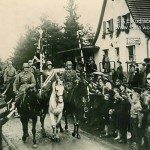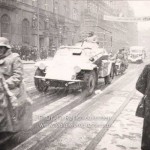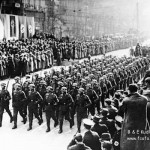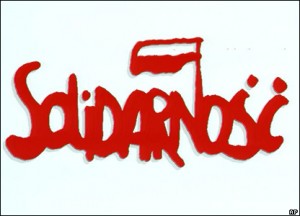Mar 12 2014
Gorbachev and Krenz – November 1, 1989
Document 9 of Briefing Book 293 of the GW National Security Archive presents a translated conversation from a visit by Egon Krenz to meet with Mikhail Gorbachev. Krenz had recently replaced Erich Honecker as party leader in the German Democratic Republic (GDR), and this conversation features relatively frank discussion of the social and political developments regarding mass protests in Leipzig, as well as the economic realities facing several nations of the Warsaw Pact.
Prominent features of the conversation include the reference to the bloated debt of Poland, the myopic resistance of Honecker to reform, and the improbability of German unification due to preferences for retaining the competing alliances by both eastern and western leaders as “factors that make up a necessary equilibrium.” Even more significant than these observations, are several telling statements made by both men. Early in the dialogue Gorbachev refers to the “human standpoint” in contrast to the clearer political perspective regarding the problems facing the East German regime. This human standpoint, which he describes as “dramatic,” was foundational to the aspirations of demonstrators in Leipzig and growing numbers of other East Germans. Policy changes by Honecker, which Gorbachev suggests could have allayed the unrest, would not have changed the reality of these considerations of human dignity, and even as he fails to see that the gradual emergence of honesty in communist governance was unleashing uncontrollable forces, he does recognize that there were more than simply political and economic forces at issue.
During the discussion of the debate on German unification, Gorbachev indicates an understanding of the need for special relations between the the GDR and the German Federal Republic (FRG), but that ties between the “two German states… should be kept under control.” This persistent expectation that reform could be controlled as in the past indicates a fundamental misunderstanding of the power of his own reform programs of “perestoika” and “glasnost.” Public acknowledgement of the need for reform emboldened dissidents in a new way. This new phenomenon, which opened the door to genuine electoral competition and eventually the demise of formal communism, was no more controllable than the political momentum that would drive the FRG to absorb the poorer and weaker GDR. In short, Gorbachev and Krenz have some idea that the ground is shifting beneath them, but they are just as blind as Honecker to the fact that they have already lost control of the course of events in East Germany, and will not be able to influence them from any standpoint, human or otherwise, much longer.
As far as evaluating the source, I can only rely on the reputation of the archive to confirm that this source is a valid one. The conversation was most likely recorded, according to my estimation, for this transcript to have been transcribed; however there is no mention of the method of its collection, and indeed no specification of the medium of conversation. I am left to assume it was a meeting in person, as the description states that Gorbachev was receiving Krenz on November 1. There is no way for me to evaluate the degree of accuracy of the translation, as there is no copy provided of the original, and the interpretation is essential for my understanding as this conversation likely took place in Russian, or less likely in German. The following citation is provided after the text of the document:
Source: Archive of the Gorbachev Foundation, Fond 1. Opis 1. On file at the National Security Archive. Published in Mikhail Gorbachev i germanskii vopros: sbornik dokumentov 1986-1991. Moscow: Ves’ Mir, 2006, pp. 232-245 Translated by Svetlana Savranskaya.
Comments Off on Gorbachev and Krenz – November 1, 1989
